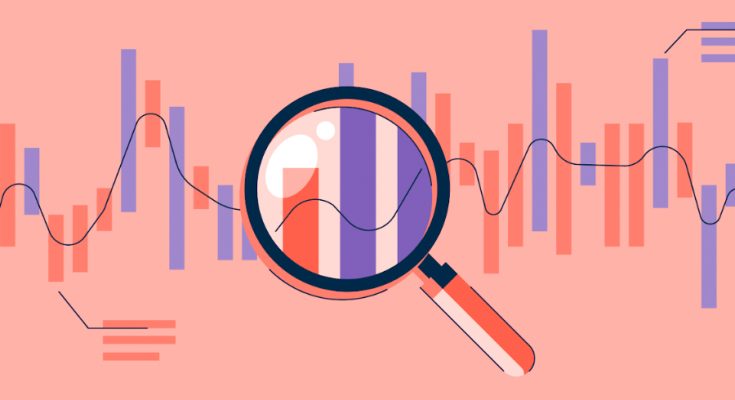In today’s data-driven world, data analysis tools are becoming more and more important and bring many benefits to businesses and organizations. One of the main benefits of these tools is that they help improve the decision-making process and data analysis tools help decision-makers make more informed, data-driven decisions by providing deep insights into complex data sets. Decision-making techniques have traditionally depended on hunches, knowledge, and experience. However, as data becomes more plentiful, companies may now take advantage of the strength of data analysis tools to learn more about their operations, clients, and markets.
Decision-makers can filter, process, and analyze massive amounts of data considerably faster with the aid of data analysis tools than they could manually. As a result, they can recognize trends and patterns faster than they might have been able to manually. For instance, an e-commerce business can watch client behavior on its website, identify the products that are selling well, and forecast future demand using data analytic tools. They can use this information to decide what products to carry, how to price them, and what promotions to run.
One of the first benefits you will receive is the increased efficiency.
Tools for data analysis can help you be more productive by delivering quicker and more accurate data analysis tools that are less prone to mistakes than human analysts and can handle and analyze enormous amounts of data considerably faster. As a result, businesses may be able to use the data to make decisions more quickly and accurately. By offering insights that were previously elusive or hard to gain, data analysis tools can also boost productivity. By offering a centralized platform for data analysis, data analysis tools can also improve productivity. The time and resources required to handle and analyze data may be decreased as a result of this.
One of the best benefits of data analysis tools is you can enhance performance monitoring.
 Tools for data analysis are becoming more and more crucial for businesses across many different industries. The ability for organizations to track key performance indicators in real-time and pinpoint opportunities for improvement is one of these technologies’ most important advantages and data analysis tools for data analysis can improve performance monitoring by giving real-time information. These solutions enable organizations to receive real-time notifications when KPIs change by continuously monitoring data from numerous sources. This can assist organizations in making data-driven decisions to boost performance, quickly adapt to changing situations, and spot possible problems before they become serious ones.
Tools for data analysis are becoming more and more crucial for businesses across many different industries. The ability for organizations to track key performance indicators in real-time and pinpoint opportunities for improvement is one of these technologies’ most important advantages and data analysis tools for data analysis can improve performance monitoring by giving real-time information. These solutions enable organizations to receive real-time notifications when KPIs change by continuously monitoring data from numerous sources. This can assist organizations in making data-driven decisions to boost performance, quickly adapt to changing situations, and spot possible problems before they become serious ones.
One of the benefits you will receive is the cost saving.
Tools for data analysis are becoming more and more common in businesses of all sizes and all sectors. One of the main advantages of these tools is that they can reduce expenses in several different ways, such as by eliminating manual labor or by streamlining processes. By automating tedious manual operations, data analysis tools can save expenses in several ways.
Tools for data analysis can reduce expenses by spotting operational inefficiencies. These technologies can find places where procedures can be strengthened or where resources can be distributed more wisely by analyzing data from various sources. Making better judgments for businesses is another way that data analysis tools can reduce costs and data analysis tools can assist organizations in making data-driven decisions that have a higher chance of success by offering insights into consumer behavior, market trends, and other aspects that have an impact on the business. This can help to prevent expensive errors and guarantee that resources are distributed as efficiently as possible.
The other benefit you will receive is the competitive advantage.
Many organizations’ strategies for attaining a competitive edge in their respective industries now heavily rely on data analysis technologies. By utilizing these technologies, businesses can find insights that may be concealed in their data, empowering them to take more educated decisions that may increase their chances of success data analysis tools can help organizations recognize and comprehend trends in their sector, which can provide them a competitive edge. This knowledge can assist businesses in identifying opportunities to set themselves apart from the competition and enhance their offerings in response to changing consumer demands.
Tools for data analysis can help businesses gain a competitive edge by empowering them to make decisions based on data. Organizations can utilize data analysis tools to make well-informed decisions based on actual data rather than depending on gut feeling or intuition. This strategy can assist businesses in making decisions that will increase their chances of success. By increasing operational efficiency, data analysis technologies can also give businesses a competitive edge. Organizations can spot inefficiencies and chances for improvement by analyzing data on operational processes. This can aid businesses in streamlining their operations, cutting costs, and raising the caliber of their output.




